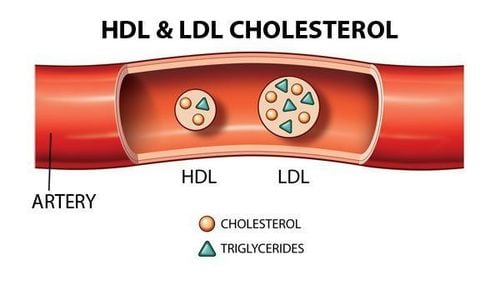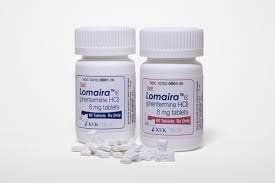This is an automatically translated article.
The following article will provide you with information on 23 studies comparing low carb (low-carb) and low-fat (low-fat) diets. All studies are controlled clinical trials and all appear in peer-reviewed journals.
1. General overview of weight loss results in 23 studies
Most studies find a significant difference in weight loss and favoring a low carb diet.
In addition:
In the group of subjects that follow a low carb diet, they often lose 2-3 times more weight than the low fat diet group (low fat). In most cases, the low-fat groups had to adhere to a calorie-restricted diet, while the low-carb groups ate as many calories as they wanted. Both groups restricted calories, but those on the low carb diet still lost more weight, although this result was not statistically significant. Only one study showed that the low-fat group lost more weight, but the difference was not statistically significant. In some studies, subjects lost weight when they first started following the diet. However, the person then began to regain weight over time when giving up the diet. Low carb diets are more effective at reducing belly fat, which is a type of fat that has been linked to many different diseases.

Chế độ ăn low-carb có hiệu quả trong việc giảm cân
Two reasons why low carb diets are more effective for weight loss:
high protein content suppresses appetite LDL (bad) cholesterol
Low carb diets generally do not raise total and LDL cholesterol levels (harmful). A low-fat diet can lower total and LDL (bad) cholesterol, but this is usually only temporary. After 6–12 months, the difference is usually not statistically significant.
Several other studies have reported that a low carb diet can raise LDL (bad) cholesterol and other lipid markers in some study subjects. However, the authors in these 23 studies did not note these adverse effects.
HDL (good) cholesterol
One way to increase HDL (good) cholesterol levels is to eat more fats. For this reason, it is not surprising that a low-carb, higher-fat diet is more likely to raise HDL (good) cholesterol than a low-fat diet.
Higher levels of HDL (good) can help improve metabolic health and reduce the risk of cardiovascular disease. People with metabolic syndrome often have low (good) HDL levels.
Eighteen out of 23 studies reported changes in HDL (good) cholesterol levels.

Chế độ low-carb không làm tăng mức cholesterol có hại và tăng mức cholesterol tốt
Triglycerides
Triglycerides are an important risk factor for cardiovascular diseases and a major symptom of metabolic syndrome. The best way to lower triglycerides is to eat less carbohydrates and especially less sugar.
Nineteen out of 23 studies reported changes in blood triglyceride levels.
Blood sugar, insulin levels and type II diabetes
People without diabetes show improvement in their blood sugar and insulin levels on both low carb and low fat diets. Three of 23 studies compared how diet affects people with type II diabetes.
In one of these three studies, many improvements occurred, including a dramatic drop in HbA1c, a marker for blood sugar levels. In addition, more than 90% of study subjects in the low carb group attempted to reduce or eliminate their diabetes medication. However, the statistical analysis showed that the study with only a small difference with the other two studies, because the study subjects had poor adherence.
Blood pressure
When this index was checked, the study subjects' blood pressure tended to decrease on both types of diets.
2. Introduction of some results in 23 studies
Randomized trial of low-carbohydrate diets in obesity by author G.D.Foster - published in the New England Journal of Medicine (2003)
Sixty-three obese adults follow the diet low fat or low carb for 12 months. The low-fat group was calorie-restricted.
After 6 months, the low carb group lost 7% of their total body weight, compared to the low fat group, which lost only 3%. The difference was statistically significant at month 3 and month 6 but not statistically significant at 12 months. The low carb group had a greater improvement in blood triglycerides and HDL (good cholesterol), but other biomarkers (biomarkers) were similar between the two groups.
Low-carbohydrate versus low-fat diet in severely obese people by F. F. Samaha - published in the New England Journal of Medicine (2003)
In this study, 132 people were severely obese (mean BMI 43) followed a low-fat or low-carb diet for 6 months. Many people already have metabolic syndrome or type 2 diabetes. People on low-fat diets have limited calories.
The low carb group lost an average of 12.8 pounds (5.8 kg), while the low fat group lost just 4.2 pounds (1.9 kg). The difference is statistically significant.

Chế độ ăn low-carb có hiệu quả giảm cân hơn so với chế độ ăn ít béo
Effect of low carbohydrate diet on weight loss and cardiovascular risk factors in overweight adolescents by S. B. Sondike - published in The Journal of Pediatrics (2003).
Thirty overweight adolescents on a low carb or low fat diet for 12 weeks.
Results showed that those on the low carb diet lost 21.8 pounds (9.9 kg), while those on the low fat diet lost only 9 pounds (4.1 kg). The difference is statistically significant.
Randomized trial comparing body weight and cardiovascular risk factors in healthy women on a very low-carbohydrate and low-fat calorie-restricted diet by author B. J. Brehm - published published in The Journal of Clinical Endocrinology & Metabolism, 2003.
Fifty-three obese but otherwise healthy women followed a low-fat or low-carb diet for 6 months. The low-fat group of women had to restrict calories.
Results showed that people in the low carb group lost an average of 18.7 pounds (8.5 kg), while those on the low fat diet lost an average of 8.6 pounds (3.9 kg). The difference was statistically significant after 6 months. The low-carb group lost 2.2 times more weight than the low-fat group. Blood lipids improved significantly for each group, but there was no significant difference between groups.
Randomized trial comparing the National Nutrition Education Program with a diet lower in carbohydrates, higher in protein and monounsaturated fats by author Y. W. Aude - published in the Archives of Internal Medicine, 2004
Sixty overweight people on a low carb diet high in monounsaturated fat or a low fat diet based on the National Dietetic Education Program (NCEP) for 12 weeks . Both groups restricted their calorie intake.
Results showed that the low carb group lost an average of 13.6 pounds (6.2 kg), while the low fat group lost 7.5 pounds (3.4 kg). The difference is statistically significant.
Low-carbohydrate ketogenic versus low-fat diet for the treatment of obesity and hyperlipidemia by W. S.Yancy - published in Annals of Internal Medicine, 2004.
In Research For this study, 120 people with excess fat and high cholesterol followed a low carb or low fat diet for 24 weeks. The low-fat group had their calorie intake restricted.
Results showed that people in the low carb group lost 20.7 pounds (9.4 kg) of total body weight, compared with 10.6 pounds (4.8 kg) in the low fat group. Those in the low carb group lost significant weight and had a greater improvement in blood triglycerides and HDL (good) cholesterol.

Theo nghiên cứu, chế độ ăn low carb đem lại sự cải thiện lớn hơn về triglyceride máu
Comparison of very low carbohydrate and low fat diets in weight loss and body composition in overweight men and women by J. S. Volek Nutrition & Metabolism (London), 2004.
Implementation study In 28 people who were obese or overweight, women followed a very low-carb or low-fat diet for 30 days, and men also followed one of these diets for 50 days. Both diets were calorie-restricted.
Results showed that people in the low carb group lost weight significantly. This was especially true for men, even though they ate more calories than the low-fat group.
Comparison of low-fat to low-carbohydrate diets on weight loss, body composition and risk factors for diabetes and cardiovascular disease in overweight men and women by author K. A. Meckling - published in The Journal of Clinical Endocrinology & Metabolism, 2004.
Forty overweight people followed a low-carb or low-fat diet for 10 weeks. Each group had about the same amount of calories.
At the end of the study, the low carb group lost 15.4 pounds (7.0kg) and the fat reduction group lost 14.9 pounds (6.8 kg). The difference is statistically significant.
Vinmec International General Hospital is the address for examination, treatment and prevention of diseases. When performing the examination process at Vinmec, customers will be welcomed and used modern facilities and equipment along with perfect medical services under the guidance and advice of Dr. well-trained doctors both at home and abroad.
Customers can directly go to Vinmec Health system nationwide to visit or contact the hotline here for support.
Reference source: healthline.com













